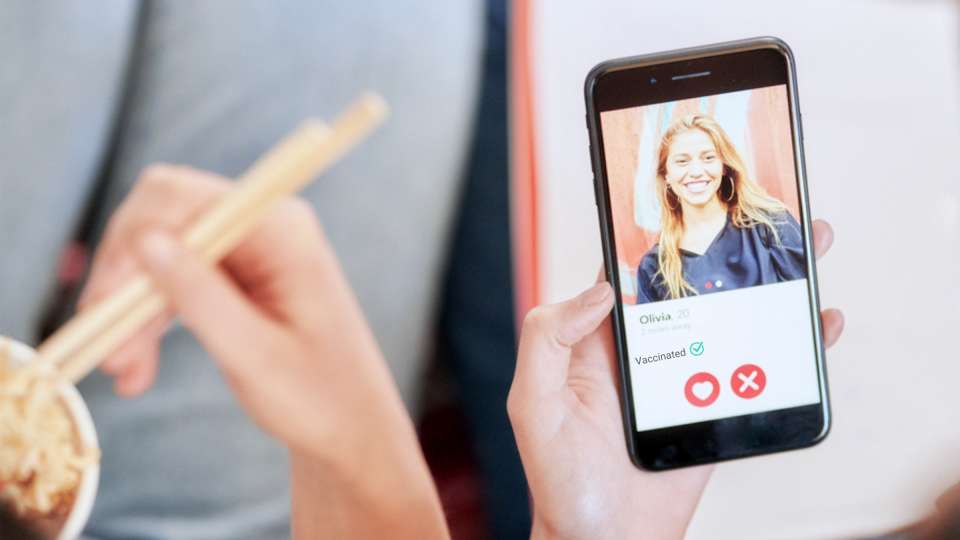
So you got the COVID-19 vaccine. It’s been two weeks after your second dose in a two-dose series (Pfizer or Moderna), or two weeks after your single-dose vaccine (Johnson & Johnson), and you’re excited about your new status (as you should be).
But you have questions: Should you post that vaccine selfie? What should you do with the vaccination card, and how do you keep it safe?
Dr. Deborah Fuller, a vaccinologist and professor of microbiology at the University of Washington School of Medicine, answers your questions and more.
Should you post that vaccine selfie?
Go for it!
“There are a lot of people who are vaccine hesitant,” says Fuller. “The more they see people out there getting the vaccine, the more it will help bring people to the clinics.”
So, if you’re excited about it, post your selfie. Fuller says we want getting vaccinated to be the contagion — not COVID-19.
“I think people take comfort when they see people they know do it,” says Fuller. “Social media can be a powerful way to encourage others to get the vaccine.”
What about posting a photo of the vaccination card itself?
It’s good to be cautious with your personal information online.
Vaccination cards have identifying information like full name, birthdate and patient number. Even the clinic name where you received your vaccine might give away your location information. So before posting a photo of the card itself, consider what information you feel comfortable sharing online.
Other options to show your vaccine enthusiasm without sharing your vaccination card could be a selfie of your arm with the bandage or wearing the vaccination sticker that you received from the clinic.
Should you share which brand name you received?
The good news is that any vaccine type or brand you receive is effective at preventing severe illness and death from COVID-19.
“If you’re talking about vaccines, vaccination status is naturally going to arise in conversation, so I think it’s fine to post or share the manufacturer’s name,” says Fuller. “Sharing experiences and swapping stories is part of the normal process of getting vaccinated.”
One thing that Fuller notes is it’s not normal, or nice, to vaccine-shame those who have not received the vaccine yet. Making someone feel bad or guilty about their medical choices isn’t helpful — and may deter them even more.
“Everyone has their own reasons and timeline for getting the COVID-19 vaccine,” says Fuller. “Sharing with friends and family and talking openly about your experience is the best way to help.”
Should you advertise your vaccination status on your dating app?
Navigating dating and socializing became more challenging during the pandemic. And now, with vaccines, it feels even more complicated to traverse relationships with all the varying vaccination statuses: fully vaccinated, partially vaccinated, unvaccinated or unknown.
Maybe you’ve already seen some new options to update your vaccination status on your favorite dating app. Nine dating sites added features that let users easily share their vaccination status, match with other vaccinated people or access premium features in an attempt to incentivize more people to get vaccinated.
So, should you add your vaccination status to your profile?
Fuller’s take: It’s not necessary to add to your profile since vaccination conversations will likely come up organically.
“I personally wouldn’t want to eliminate someone compatible just because they haven’t received their vaccine yet or are hesitant,” she says.
If you are chatting with someone on an app and you’re interested in meeting up, that would be a good time to have “the talk” and find out each other’s vaccination status and comfort levels.
Most importantly, follow the Centers for Disease Control and Prevention and state and local guidelines when planning to meet up with someone outside your household.
What should you do with your vaccination card?
First, and after each dose, take a photo of your card (front and back) to keep for your records in case you lose the physical copy.
If you do lose the physical card, don’t sweat it. You can obtain verified proof of your COVID-19 vaccination through the MyIR website, which is an official state pathway to access proof of vaccination in Washington state. If you have questions or need help, call the Department of Health COVID-19 hotline at 833.VAX-HELP or email at waiisrecords@doh.wa.gov.
Another option: Bring you card to your next primary care appointment and share it with your doctor so you know they have a record.
Should you laminate your vaccination card?
Some office supply stores have been laminating vaccination cards for free, but does that mean you should do it too?
Fuller gives this trend a thumbs up.
To be on the safe side, the Department of Health recommends making a photocopy of your vaccination card to laminate instead of the original.
“We will eventually get to the point where we might not see another pandemic period like this,” says Fuller. “When someone years from now asks you what it was like, you can show them your vaccine card.”
Plus, if you need to show your vaccination card for an event (or just to get your free Krispy Kreme doughnut), laminating a copy can help keep it from getting wet or damaged.
The info in this article is accurate as of the publishing date. While Right as Rain strives to keep our stories as current as possible, the COVID-19 pandemic continues to evolve. It’s possible some things have changed since publication. We encourage you to stay informed by checking out your local health department resources, like Public Health Seattle King County or Washington State Department of Health.

 Healthy ideas for your inbox
Healthy ideas for your inbox





